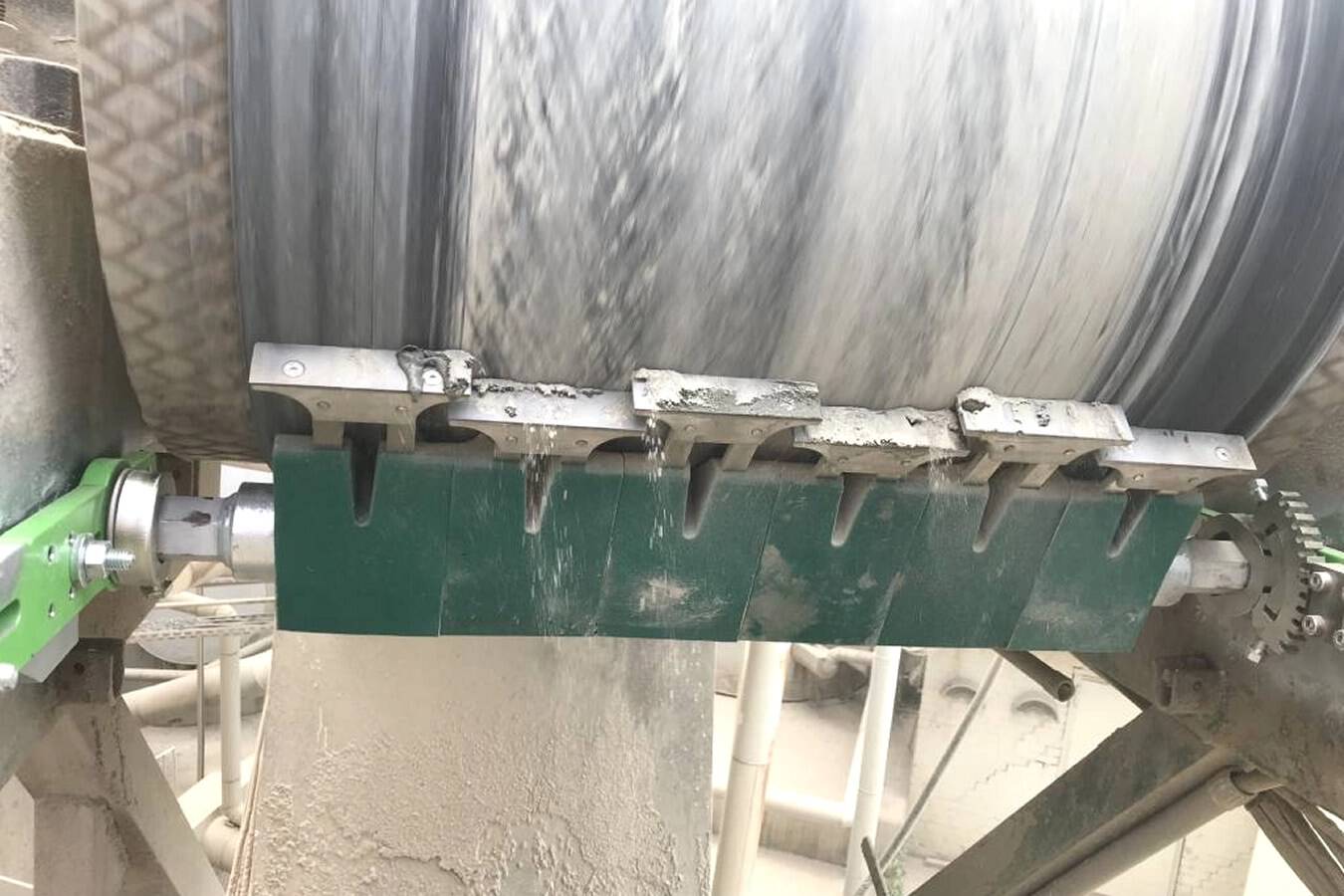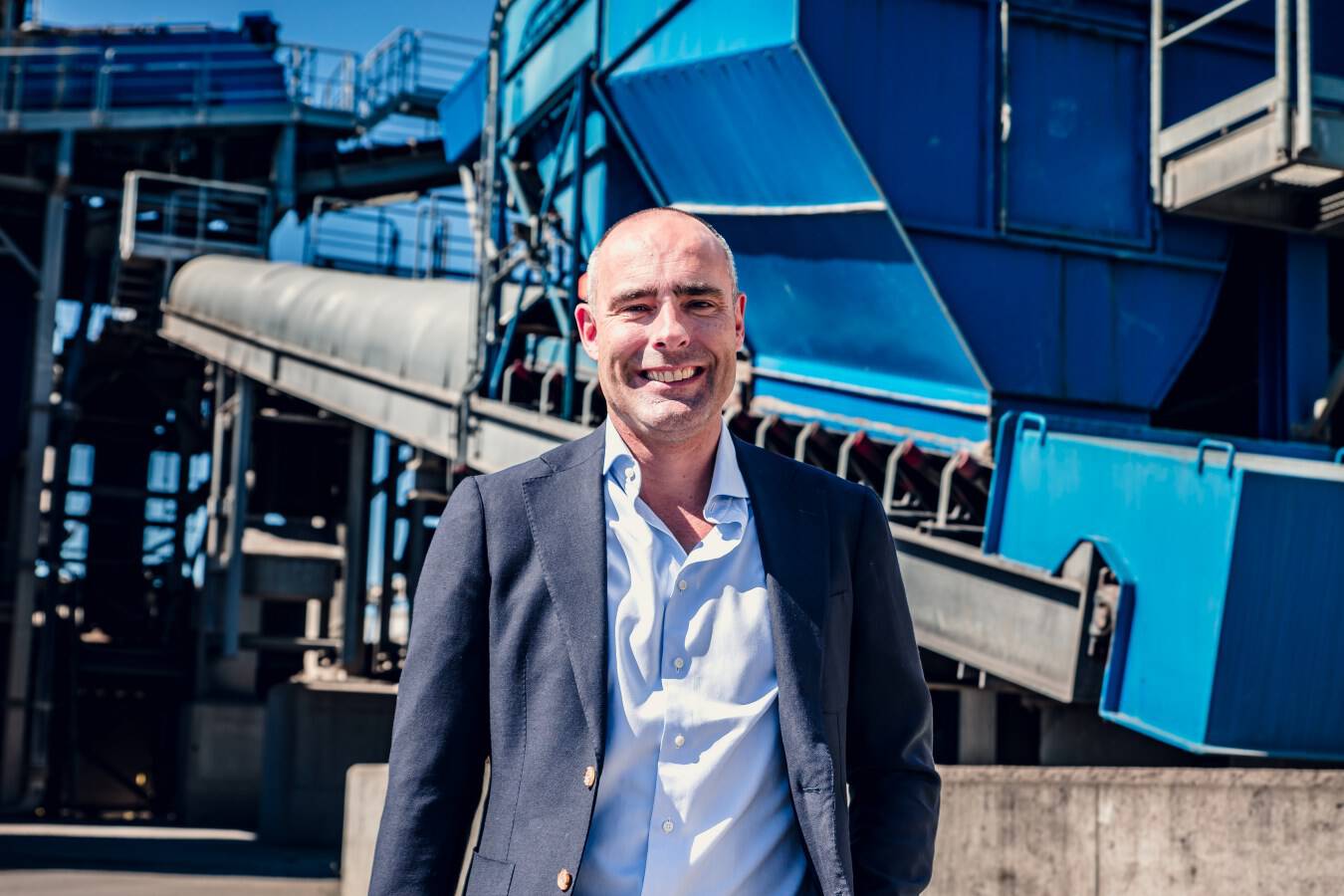Innovative compost post-processing solution
IFE Benelux, Hoving Holland and Indaver develop an innovative compost post-processing solution
A new and innovative method for post-processing decomposed fruit, vegetable and garden (gft) waste into high-quality end products which has minimal impact on nature and the environment. At a time when the agricultural sector is under severe pressure, this sounds almost too good to be true. Yet IFE Benelux, Hoving Holland and the industrial waste processor and compost producer Indaver Nederland, jointly succeeded in developing a sustainable, circular and future-proof solution that offers new opportunities for farmers.
“We want to process a circular fruit, vegetable and garden (gft) waste stream, so that the compost produced is returned into the food chain as fertilizer”, says Robert de Letter, assets and projects manager at Indaver Nederland. “After the composting process, a mixture of composted and non-composted material remains. Previously, the non-composted residual fraction generally went back into the process, mixed with fresh fruit, vegetable and garden (gft) waste. But in recent years, we have seen an increase in the contamination of the supplied fruit, vegetable and garden (gft) waste, while the quality requirements for the compost produced continued to become more stringent. Therefore, it is becoming increasingly important to remove contamination from the treatment process at an early stage.” Although there is no legal requirement in terms of permitted contamination percentages of fruit, vegetable and garden (gft) waste, according to De Letter, municipalities adopt 5 per cent as standard. Indaver, on the other hand, advocates a pollution percentage of fruit, vegetable and garden (gft) waste of 1 to 2 per cent, a percentage similar to that in neighbouring countries. “This requires effort from both municipalities and the public. By investing in the latest technology, says De Letter, we can ensure that compost, which is both uncontaminated and meets the strictest requirements of the ‘Keurcompost’ quality mark, can be produced”.
Circular player
Indaver has undergone a genuine transition since being founded in the early 1990s. The originally Flemish company began as a terminal industrial waste treatment plant, but has in recent years transformed into a full-fledged player within the chain, embracing the circular economy. In August 2021, the post-processing plant at Indaver Compost in Europoort Rotterdam was destroyed in a fire, forcing the company to radically alter its existing expansion plans. The fire, ironically, turned out to be a stroke of luck. De Letter: “We took the opportunity to make a virtue out of necessity and opted for a completely new plant. Indaver came up with a new concept to produce a reusable biomass fraction in addition to clean compost. In an existing plant, you have to make the best of the situation, integrate, measure and make compromises. Now, we were able to rebuild everything from scratch. We began looking for partners who could help us achieve this concept”.
Open-minded
While the waste processor temporarily deployed machinery to allow the production process to continue, the company found two reliable partners in IFE Benelux and Hoving Holland to shape the huge project within six months. The result? The implementation of two brand-new sieve shakers which are, unlike the old sieve drums, operationally safer, more efficient and more maintenance-friendly. Pre-sieving is done on an IFE 3D sieve shaker. This is equipped with different sieve sizes to screen three fractions, after which the intermediate fraction is transferred onto the IFE Trisomat flip-flow screen, in order to screen out the compost fraction. In addition, the new set-up has IFE magnetic belts for optimal ferrous removal. Wijnand van de Vendel, co-owner of IFE Benelux, part of TBK Group: “The opportunity for us to think innovatively was definitely there. The machine, as described in the application specification, was good, but we felt it could be improved. At IFE Benelux, we wanted to contribute our own input, think it through and make it stand out. We were convinced that our company had the in-house expertise for the required application technology, and we soon became aware that Indaver was receptive to this approach. There was almost an immediate sense of trust and mutual respect. It has become a very user-friendly, low-maintenance plant, which removes a greater amount of pollution from the compost and biomass and produces a purer, organic product.”
More sustainable, thanks to innovation
Composting is a completely natural, biological process. Indaver helps Mother Nature by blowing large amounts of oxygen through the organic material. A lot of energy is released during the decomposition process which causes moisture to evaporate, kills pathogens and residual seeds, and leaving a (food) safe product. Bertjan Meems, project leader at Hoving Holland, was able to elaborate technically on the concept devised by Indaver to separate biomass from pebbles and other pollutants: “For this project, we applied new technologies in combination with existing ones. For example, innovatively linked conveyor belt systems ensure that as much plastic as possible ends up on top of the compost, after which it is easily removed using a combination of vibration and suction technology.” Like Van de Vendel, Meems is proud of the completed project, which has resulted in biomass and higher-quality compost as an added sustainability benefit. “These days, you need to work together if you want to come up with the best technology, and when you find the best partners for this, you get the best results.”
Future-proof
De Letter is very enthusiastic about the new, innovative post-processing method that results in better compost, less residue, and biomass of guaranteed quality, both now and into the future: “Unlike previously, we can now attune production to a pure return fraction, to be reintroduced into the composting process. The coarse material is no longer returned to the process, but is stripped of plastic and pebbles. This is how we make biomass from what used to be a residue stream. It was a huge project to undertake, and our partnership with IFE Benelux and Hoving Holland proved to be an extremely beneficial move. We benefited greatly from our excellent cooperation, including during the preliminary process during which we specified our requirements and wishes. And when it has finally been built and then does all that you had hoped for, that’s really amazing. It gives you such a wow feeling.”

